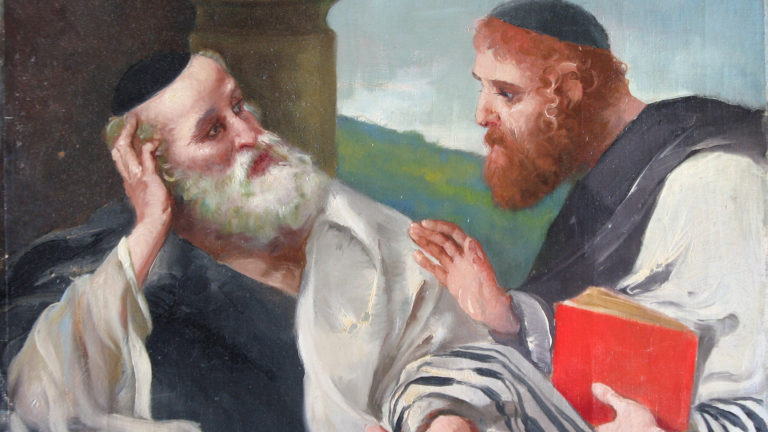Pirkei Avot: The Misunderstood Masterpiece
Rabbi Meir Soloveichik
A free, 6-part audio course
The mishnaic text of Pirkei Avot is traditionally studied each week during the seven-week period between the holidays of Passover and Shavuot. The Tikvah Fund is releasing Rabbi Meir Soloveichik’s free audio course on this enigmatic tractate for all who wish to join him in this tradition of study.
The mishnaic tractate of Avot may be the most beloved tractate in the rabbinic cannon; but its purpose and teachings may also be misunderstood. Its maxims rise readily to the lips of the literate Jew; yet, these very same sayings are treated as teachings uttered in a vacuum, unrelated to the unique lives of the sages who authored them. Even the common translation of the tractate, “Ethics of the Fathers,” reveals the popular misconception that the book’s focus is exclusively moral. In fact, Avot’s teachings also delve deeply into human nature and Jewish chosenness, the balance between obligation and creativity, the purpose of Torah study, and God’s relationship with the world.
In this new audio course from the Tikvah Fund, Rabbi Dr. Meir Soloveichik guides us through the Talmudic literature about each of the ancient scholars cited in the tractate, helping us better understand how Avot provides a window into the unique worldview, and history, of each rabbinic sage. He thereby shows us how to understand Avot as what it really is: an intellectual history of Jewish minds that were often in debate, and who offered solutions to challenges in a post-Temple world that was in many ways not unlike our own.
You access the Hebrew and English text of Pirkei Avot here, courtesy of Sefaria. We wish to thank Sefaria for providing the textual translations used in these classes.
You can listen to every lecture right on this website below.
Or if you prefer, you can subscribe to the course as a podcast on:
Episode 1: What is Avot Really About? The Nature and Purpose of a Rabbinic Masterpiece
In this opening lecture, Rabbi Soloveichik introduces Tractate Avot, “the most beloved and most misunderstood book…in all of rabbinic literature.” Learn how the first chapter of this work embodies the history of Jewish theology and law from the end of the period of the prophets until today. (52:54)
Episode 2: The Rise of the House of Hillel
In his second lecture, Rabbi Soloveichik unravels the significance of the most famous Talmudic rabbi, Hillel, who summarized the whole of the Torah while standing on one foot. (41:08)
Episode 3: The “Chosen People” between Universalism and Particularism
Avot includes the words of generations of renowned sages. But there are surprising omissions as well. In this lecture, Rabbi Soloveichik explores the “mystery of the missing Gamliel,” the grandfather of the author of the Mishnah, thereby throwing new light on the meaning of the whole composition. (40:29)
Episode 4: The Majesty and Humility of Judah the Prince
Great historical figures often cannot imagine the world without them. Rabbi Judah the Prince, one of the greatest leaders of Jewish history, presents a stark exception to the rule. Rabbi Soloveichik tells his story and examines the relationship between authority and mortality, greatness and humility. (38:26)
Episode 5: Rabban Yochanan Ben Zakai and the Creation of Yavneh
Rabbi Yohanan ben Zakkai may be said to have single-handedly saved Judaism after the destruction of the Second Temple. In this lecture, Rabbi Soloveichik recounts and interprets this visionary realist’s place in Avot and in Jewish history. (42:20)
Episode 6: The Excommunication of Rabbi Eliezer and the History of Rabbinic Judaism
The incredible story of the “Oven of Akhnai,” so rich in drama and meaning, sheds light on a jarring feature of Avot: Rabbi Eliezer’s critical comment against the sages. In his final lecture, Rabbi Soloveichik connects the dots, bringing together the themes of the previous lectures and highlighting Judaism’s “symposium of the generations.” (43:27)


